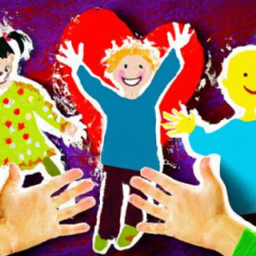Games for developing social skills and empathy for children with ADHD
By Petr | Published on: Wednesday 9th October 2024
Games for developing social skills and empathy in children with ADHD
Children with ADHD may sometimes have difficulties interacting with other children or understanding the emotions of others. However, social skills and empathy are crucial for their success in relationships and everyday interactions. Below are some games that support the development of these abilities in a fun and non-intrusive way. These games help children better understand emotions, communicate effectively, and respond to various social situations.

1. Role-playing Game
Description:
Role-playing is very beneficial for children with ADHD as it allows them to experience different social situations and develop empathy. The game involves children playing various roles, such as customer and salesperson, doctor and patient, or teacher and student.
How to play:
- Select a situation you want to play, such as a visit to the doctor or shopping in a store.
- Assign roles among the children (or child and adult).
- Act out the situation and encourage the child to think about what the other person is feeling or needing.
- Afterwards, discuss what they learned during the game or how they would feel in the other person's role.
Why this game is suitable:
Role-playing helps children with ADHD understand different perspectives and develop empathy. By trying out others' roles, they begin to understand others' emotions and needs, which promotes their social skills and empathy.
2. Collaborative Drawing Story
Description:
This game supports collaboration and communication. Two children or a child and an adult draw a story or picture together. Each player adds their own part to the story and must agree on how to continue.
How to play:
- Prepare paper and crayons or markers.
- Start drawing a basic shape or character and instruct the child to add the next element.
- Alternate and collaborate to create a cohesive picture or story.
- After finishing, discuss what they created together and the meaning of the story.
Why this game is suitable:
Collaborative drawing promotes communication and the ability to work together. Children learn to listen to others' ideas, respect them, and contribute their own thoughts. This is important for developing the skills needed for teamwork and interaction with others.
3. Emotion Cards
Description:
Emotion cards are simple pictures depicting various emotions, such as joy, sadness, anger, or surprise. Through this game, children with ADHD can better recognize and understand the emotions of others and their own feelings.
How to play:
- Prepare emotion cards with pictures and the names of each emotion.
- Show the child one card at a time and ask them when they felt that way, or have them act out that emotion.
- Discuss what caused that emotion and how the child could manage or respond to it.
Why this game is suitable:
Playing with emotion cards helps children with ADHD identify and express their emotions, which is crucial for empathy. They also learn to better recognize the emotions of other people, contributing to their social skills and understanding of others.
4. "Tell What You See" Game
Description:
This game supports the ability to listen and understand others' feelings. One child or adult describes a situation or picture, and the other child has to say what they would feel or how they would react in that situation.
How to play:
- Select a picture or describe a situation, such as a child getting lost in a store.
- Ask the child what they would think if it happened to them, and how they would feel.
- Discuss possible reactions and ways to handle the situation.
Why this game is suitable:
The "Tell What You See" game helps children develop empathy by learning to empathize with the situations of others. This type of game supports understanding emotions and reactions of others and teaches children how they can help others or how to behave in a difficult situation.